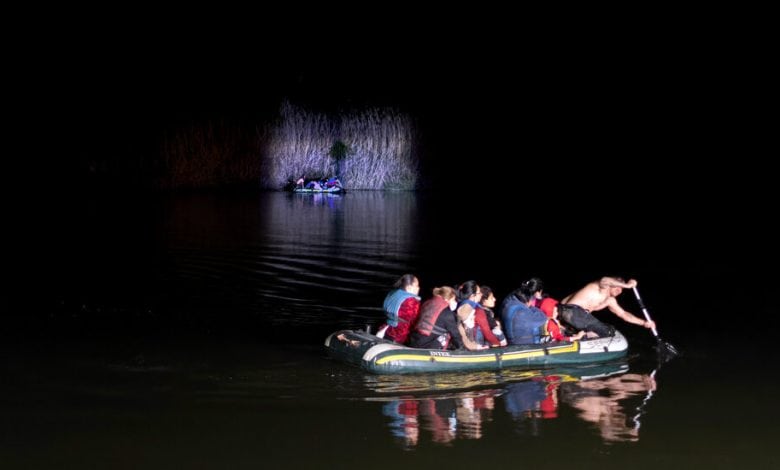A Rare Inside Look at Human Smuggling on the Border

SOLDIERS AND KINGS: Survival and Hope in the World of Human Smuggling, by Jason De León
The anthropologist Jason De León dedicated five years to studying migrants who tried to make the deadly crossing into the United States over the Sonoran Desert, hiking hundreds of miles of the trails himself so that he could better understand the dangers faced by the people he interviewed. His intensive fieldwork made its way into his 2015 book, “The Land of Open Graves,” and in 2017 he was granted a MacArthur fellowship. Yet he could see that he was still missing a crucial part of the story.
His new book, “Soldiers and Kings,” is an account of the nearly seven years he spent with the people hired by migrants to help them get to the border — smugglers, that is, though their preferred term is guía, or “guide,” as in “the one who can potentially lead you through danger.”
De León is sympathetic, and can sometimes verge on sentimental. He begins his book by arguing that far from being cruel kingpins getting rich off other people’s desperation, smugglers are like the migrants themselves: poor people trying to escape the same violence and hardship. But the reality he portrays is far more complicated; however victimized they are by the forces bearing down on them, smugglers wield undeniable power over the vulnerable migrants in their care.
As treacherous as border-crossing can be for Mexicans, the journey for Central Americans is even more perilous. They cover larger distances, and must avoid detection by law enforcement in multiple countries. De León spent a lot of time in Pakal-Ná, in Chiapas, Mexico, a key stop on the migrant trail for those entering the country from neighboring Guatemala.
There, he befriended several guías from Honduras: low-level smugglers like Chino and Santos, who say they would rather make a living doing something else; Flaco, a tall-tale teller with “obnoxious charisma” who hires foot soldiers like Chino and Santos; Papo and Alma, a couple who are trying to get humanitarian visas to stay in Mexico but are also trading information for a local chapter of MS-13; and Kingston, seemingly the highest-level smuggler of the bunch, who tells De León that “real guides” have to be ready to navigate violence on the trail. They have to be willing “to get their hands dirty,” or, as Kingston puts it, “to be down with crazies.”
The smugglers De León talks to have certain things in common, including experiences with crushing poverty and horrific violence. A few lived in the United States for a while: Santos worked in construction in Phoenix; Kingston even obtained a green card in New York as a teenager, long before 9/11 turned border enforcement into a military operation, but he was deported back to Honduras after moving up in the ranks of the Bloods and shooting someone in the face with a .22.
